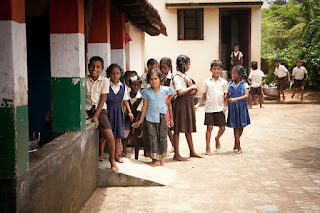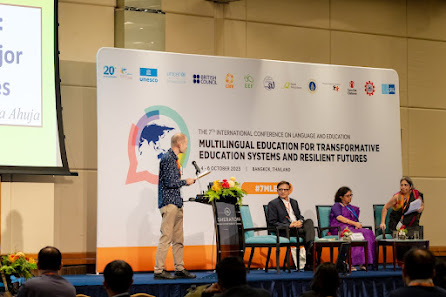New book - MLE in Tribal schools in India by Dr. Mahendra. K. Mishra
What could be more fun than reading a book authored by someone you know and about a topic you know about? The latest book by Dr. Mahendra Mishra focuses on Multilingual Education (MLE) in Tribal schools in India. I particularly liked the chapter on implementation as I remember so well how Dr. Mishra worked with our SIL colleagues Steve and Vicky Simpson, developing "Community Calendars" and "Theme Webs". It was around 2007 that I visited the project and saw the theme webs on the walls and the tribal teachers enthusiastically developing “big books”. That process is described on page 100 of the book which puts it literally and figuratively at the centre: This book is not just about the language issue in education but particularly shows a passion for the culture and folklore in which the children live and make that part of the teaching, books, and activities. In the concluding paragraph of that chapter Mishra writes "The community took a keen interest in sharing ...


